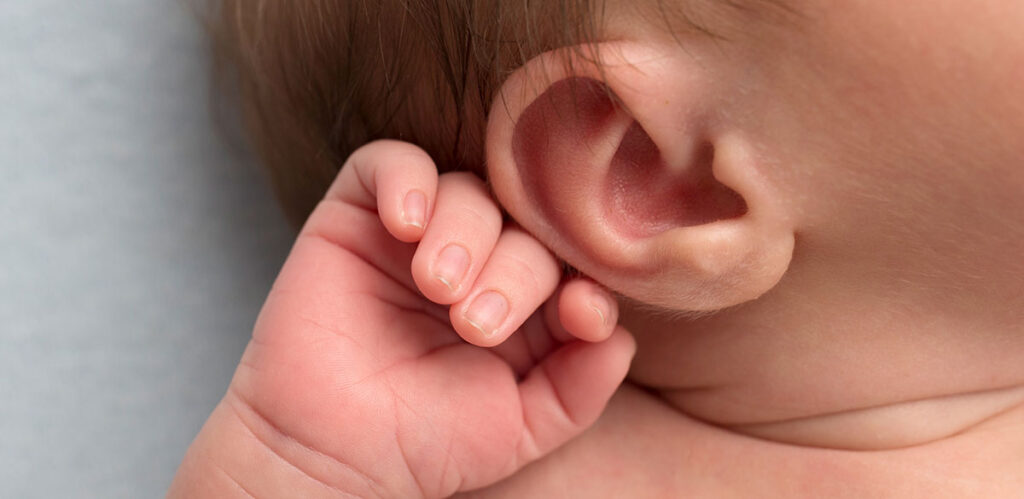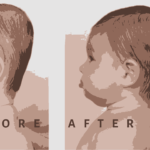Parenting gives one unforgettable blissful memories until baby-related issues set in. In this article, we will look at eight common issues babies will likely suffer from and how to manage them. Let’s jump into them right away.
Table of Contents
Toggle1. Jaundice
Jaundice is a common condition among many babies. Babies diagnosed positively for jaundice might have yellow skin and eyes and be sleepy.
Jaundice in babies occurs due to an immature liver, which means the bilirubin levels are still high. Although jaundice can go away on its own, it is advisable to seek medical help early. A medic can prescribe the right drug or treatment if they diagnose the baby with jaundice.
2. Colic

Colic is a situation where your baby cries non-stop. A colicky baby shows several symptoms, such as arching their back and clenching their fists.
There is limited knowledge of what causes colic in babies. What’s more mysterious about colic is that it becomes worse in late evenings. Some experts uphold that milk allergy, an immature digestive system, and swallowing excess air can trigger colic.
You can manage colic by regularly feeding your baby with small portions, cuddling, and burping the baby.
3. Spit Ups

All babies spit up at some point. Some spit up more, others less. Spit-ups in babies occur when the baby ingests a mixture of milk or water with air. When the baby’s stomach is full, any slight movement forces the esophagus to open, making some food to come out.
Other possible causes of spit-ups in babies include:
- Gastroesophageal reflux (GER): Due to food and acid reactions.
In most cases of GER, the baby spits up immediately after feeding them.
- Overstimulation: Due to sudden movement of the baby.
It is characterized by the baby spitting up anytime you play with them.
- Esophagitis/gastritis: Swelling of the stomach or esophagus.
You can tell a baby has either of the two conditions if they have blood in the spit-up.
- Pyloric stenosis: A condition that needs quick diagnosis and treatment.
The signs include a sudden change from spit-up to vomiting, with the vomit coming out with a lot of force.
Remedies for Spit-ups
- Burping the baby frequently to help any excess gas bubbles escape.
- Avoid playing with the baby immediately after meals. Instead, hold them upright until the food settles.
- Check on the milk formula. Some babies spit up due to formula allergies or intolerance. If they are allergic to that specific formula, consider changing it.
- Feed the baby small amounts but frequently since their stomach fills up quickly.
- Avoid cow milk since some babies have cow milk protein intolerance/allergy (CMPI/CMPA).
- Add oatmeal to your diet.
4. Ear Infections

It is not uncommon for a baby to have ear infections. Don’t fret when you see the baby holding their ears tightly, being fussy, or not paying attention when you call them.
Bacteria and viruses are the major causes of ear infections in babies. Bacterial infections are easily treatable while virus infections go away on their own. However, regardless of the cause, having a qualified medic check the baby’s ears is the best decision you can make.
5. Cold and Flu
Common colds and flu are also predominant in babies. As a parent, you might shed a tear seeing your young one struggle so much to breathe. In most cases, the flu or cold goes away on its own. However, it is advisable to seek medical help for the cold.
6. Breathing Difficult
Newborn babies might show signs of breathing distress a few hours after birth. However, once the baby has learned to breathe fully, they should not strain again.
Breathing distress in babies is linked to numerous issues. Babies with breathing difficulties have clogged nasal passages, which you can open with saline drops.
However, if the baby portrays the following symptoms, it is advisable to visit a pediatrician immediately:
- Blue skin that does not fade with time.
- Flaring of the nose.
- Grunting when breathing.
- Rapid breathing.
7. Cradle Cap
A cradle cap is a mild skin condition that newborn babies have on their scalp. Cradle cap is primarily triggered by the mother’s hormones before birth. As a result, the baby’s skin glands around the hair follicles produce excess oil. If the baby has a cradle cap, their scalp might appear as if it has white or yellow sticky scales. These two tips will help you deal with cradle cap:
- Use a mild shampoo
- Wash the baby’s hair softly but thoroughly daily.
8. Constipation
Constipation is so common among babies and should not cause alarm. You will often see the baby struggling to pass stool, arching their backs, clenching their tiny fists, and grunting.
What are the other symptoms of constipation in babies?
- Change in the stool looks; loose and watery or pebble-like.
- Swelling of the tummy.
- Painful cramps.
- Straining to have a bowel movement.
What causes constipation in babies? A deficiency of nerves in the intestines causes constipation in babies. Another possible cause of constipation in babies is the intestines’ poor shape, preventing stool movement.
Management of constipation in babies
You can take five major steps to help your baby brace constipation seamlessly and reduce its impact.
- If you have weaned your baby and introduced them to cereals, put them on an oatmeal or barley diet. These meals are rich in fiber, a component that suppresses constipation.
- 100% pure fruit juice would reduce constipation significantly for three weeks to a few months old babies. The most effective fruit juice for the baby would be; passion, apple, cherry, pears, and prune.
- Give your baby some warm water to help their stomach relax. Warm water causes the insides of the stomach to expand and expel any trapped gas.
- Try giving the baby a glycerin suppository. Glycerin suppository acts as a hyperosmotic laxative, infusing the intestines with water to relax them. You will need to push the glycerin suppository through the anus to do this. However, this method should be simple but should be used in instances when the constipation is so intense.
- Tummy time: Tummy time involves placing the baby on their stomach briefly to exert pressure on their bowels. The pressure forces out any air in the stomach and reduces the intensity of the constipation.
- Bicycle maneuvers: Hold your baby’s tiny feet and gently stimulate them as if you are cycling a bicycle. The feet turning makes the baby’s abdominal muscles stretch, and the gases in the stomach escape.
Summary
As a parent, some of these newborn-related problems might stress you and sometimes leave you traumatized. The good news is that most of these issues only last for a while and go away without treatment. You now know what is expected of you if your baby suffers from these conditions. May your baby recover from whatever they are suffering from. Just calm down and handle everything like a pro with the tips given in this article.


